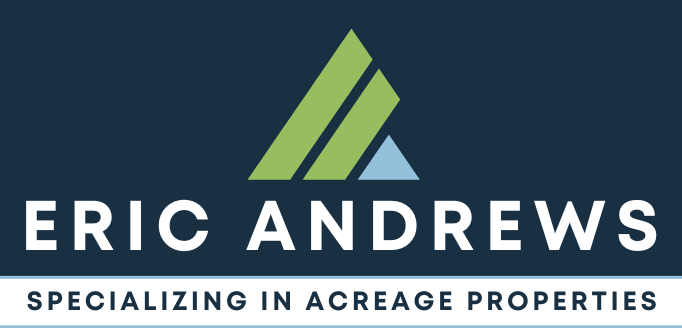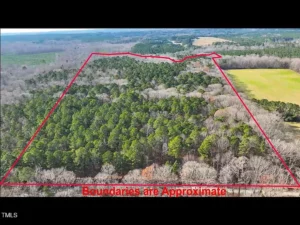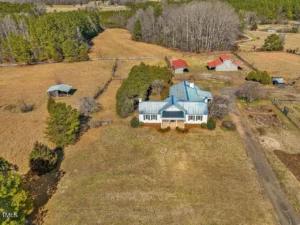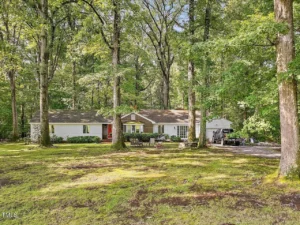NC Land Sales Expert Eric Andrews explains buying or selling lots of land which are landlocked or at least have no public road frontage in the state of North Carolina. He discusses easements and permissive use and more.
Speaker 1: Is it difficult to sell or even purchase land that has no public road frontage?
Speaker 2: So in this area, Chatham County, there’s actually more land that doesn’t have public road frontage than does. I don’t think people realize how remote you can be in this area. I’ll tell you, my daughter and I just took a flight back and we were coming in to RDU, and we were flying over Pittsboro. And it’s just an amazing amount of land. I think people just don’t realize how much land there is, because what we see is on the road, and you see all the houses on the road, but there are just thousands and thousands of acres behind all those houses.
And so, if it doesn’t have public access to a North Carolina public road, then you need some kind of deeded easement. And a deeded easement means that your property in the deed has access that runs with the land, it’ll never be landlocked. So it doesn’t have public road frontage, but you have permissive use over this other property. There’s a dominant property and a servient property. And the servient property is the property that actually has the easement over it. So those people own that land, but they can’t stop you from gaining access by your easement.
There’s all types of easements. The gold standard that we want is a 60 foot easement. If it’s a 60 foot easement, then, if you wanted to, if you had this big track of land that had a 60 foot easement, you could someday improve that road so much that it could be adopted by North Carolina, NC DOT, and it would then be a public road. If you had a 60 foot easement, it’s possible that you could make it public.
But if you have a 30 foot easement, it’s limited. We see 20 and 15 and 10 foot easements all the time. And then my favorite are the 100 and 200 year old easements that are called cart path easements. And it’s actually just the width of a cart and that’s what you got.
It’s one of the most common phone calls I get. “My daddy sold me this land and he forgot to get me an easement and da, da, da.” And so we will have so many people that are landlocked and they will have a road, and they have roads that have been used forever. And they’re like, “can they stop me from using that road?” And I’m like, “no, I can’t stop you from using that road. If you’ve been using this road for so long, nobody can stop you.” And they’re like, “okay, so that’s good. I can sell the property now.” And “I’m like, nah, not really, because you don’t have a deeded easement.” And so, whoever buys this land, now, if they wish to build a house and they have to get a mortgage, the bank is going to be like, “no, just because you’ve been using that easement for a long time, doesn’t mean that you’re guaranteed to be able to use it all the time.” So they want something that’s official in writing.
They probably want a roadmates agreement. I mean, we can go on and on and on about how complicated this gets. But, the bottom line is, people will use these roads for such a long time and they just assume that, because they’ve been using them for a long time, that they have an easement. You really need to look at the deeds and make sure that you have an easement.
So public road frontage is the gold standard, deeded easement is good, but if you have a road that isn’t described in the deed, that’s a bad thing.
The other thing that we have that is quite comical and funny is we will have a big track of land, we will have a survey with a 60 foot easement. So you have that easement and everything is fine and good, but there’s no road there. so you have it on survey, and no one can stop you from doing it, but it has 20, 40 year old pine on it and it’s a mile long. It’s going to cost you 50 to $75,000 to build that road. So congratulations, you have an easement, but you still have to put in the road.
And then because stuff happens in life, and this is an important reason to get a good surveyor, sometimes your road is not on your easement, which really confuses the heck out of people. You have a 60 foot easement, you have this road that goes down the 60 foot easement, but unfortunately it meanders off the easement, and that’s going to be a big issue to the people that you’re driving on the property. Sometimes that’s not discovered until you actually do a survey. And what happens is a tree falls down and then somebody moves the road, and then if we just assume that’s the road and everything. But your road has to be on your easement, importance of having a good survey.
So landlocked land, easements, public roads, they all have a tremendous difference on the value of the property. And that’s why you need to call somebody like me to let you know the differences.
